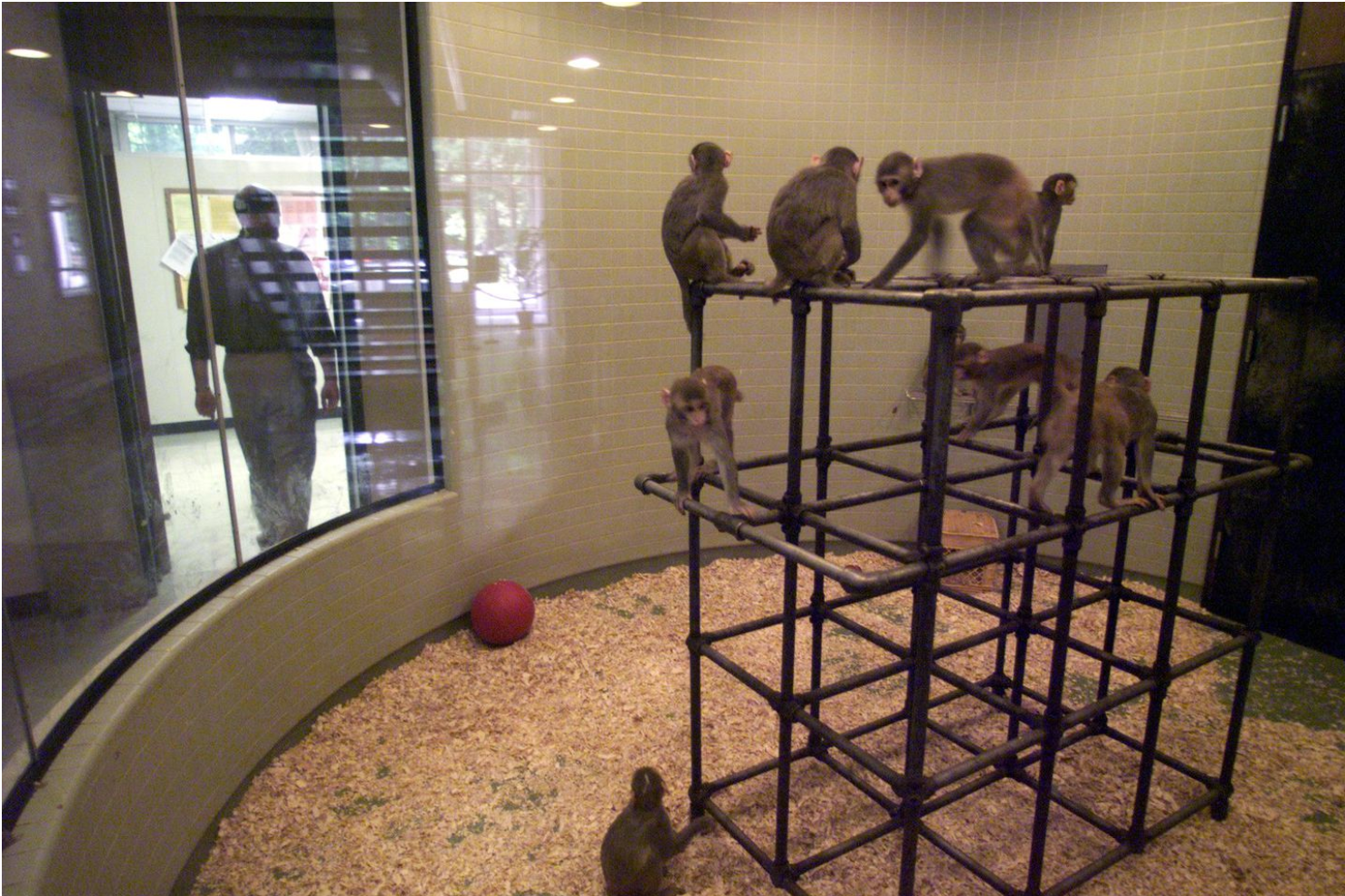by David Abel
via The Boston Globe

Monkeys at Harvard’s former New England Primate Research Center in Southborough. Between 2010 and 2012, four monkeys died at the facility.GLOBE STAFF PHOTO
In the wake of regulators formally rejecting a petition to improve the conditions of non-human primates used in federally funded research studies, a group of local animal rights advocates has sued the US Department of Agriculture, saying the agency refuses to raise standards for the animals.
Six years ago, the New England Anti-Vivisection Society, the Animal Legal Defense Fund, and other groups called on regulators to create better conditions for some 106,000 non-human primates held in captivity.
The government didn’t respond to their petition until last fall, after Harvard’s Animal Law and Policy Clinic filed a lawsuit demanding a response to their allegations, which include the government’s failure to ensure adequate living conditions for rhesus macaques, baboons, marmosets, and other primates.
In the latest lawsuit, filed Thursday in federal court in Maryland, the animal rights groups called the agency’s rejection of their 2014 petition “arbitrary, capricious, an abuse of discretion, or otherwise not in accordance with law,” noting that the existing standards were written in 1991, when less was known about the psychological needs of the primates.
“If these primates are going to continue to be used in the thousands for the benefit of humans, they at least deserve to be treated as humanely as possible while waiting to be experimented on, during the experiments, and while recuperating,” said Katherine Meyer, the clinic’s director.
USDA officials said the agency does not comment on litigation.
In a letter sent to the plaintiffs late last year, USDA officials disputed some of the allegations and said existing regulations are sufficient.
“Each case of distress is unique, specifying one approach to manage such cases would be ineffective,” wrote Betty Goldentyer, the agency’s acting deputy administrator of animal care, in response to one of many requested policy changes from the petitioners.
In Massachusetts, primates had been held in 15 USDA-licensed facilities, including ones at the Massachusetts Institute of Technology, Harvard Medical School, Boston University, Massachusetts Eye and Ear, Charles River Laboratories, and the University of Massachusetts Medical School.
The plaintiffs submitted their petition to the USDA a year after the National Institutes of Health adopted standards to protect the psychological well-being of chimpanzees used in federally funded research.
Animal rights groups have urged the federal government to recognize that the primates require environmental enrichment, such as living in social groups, access to the outdoors, and opportunities to forage for food, climb, build nests, and make choices about their activities.
Many institutions have failed to allow such enrichment, the groups said. Between 2010 and 2012, for example, four monkeys died at Harvard’s former New England Primate Research Center in Southborough. The university was fined $24,000 by federal regulators.
After the deaths became public, the Globe reported that a dozen monkeys between 1999 and 2011 had been found dehydrated and dead in their cages or had been euthanized for poor health.
The lawsuit, filed in conjunction with the Animal Legal Defense Fund of California, contends that the government has a duty to improve research primates’ living conditions, saying they share many cognitive abilities and needs with humans. Like humans, the primates exhibit complex emotions, develop relationships, and require mental stimulation.
“The current regulations allow research labs to make their own rules,” said Brett Richey, a Harvard Law student who helped draft the lawsuit. “The lives of non-human primates who think, feel, care, regret, imagine, and invent, just like us, are on the line. We cannot ignore their suffering any longer.”
Filed in: In the News, Legal & Policy Work
Contact Office of Clinical and Pro Bono Programs
Website:
hls.harvard.edu/clinics
Email:
clinical@law.harvard.edu